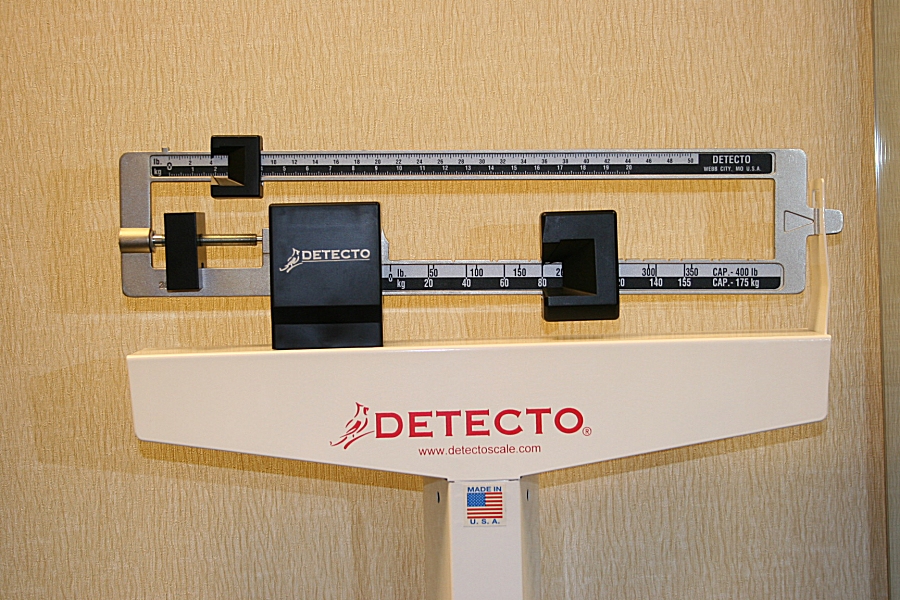So you’ve been trying this “real food” way of eating, and swear you’re following my PFC guidelines to a tee, but you’re not losing weight… what’s going on!?!?!? We’ve heard this question asked in frustration from our clients before and are here to help! The purpose of this blog post series is to fill you in on common roadblocks we’ve seen when people are diligently following our real food, PFC balanced approach, yet not seeing the results they desire.
Common roadblocks we address when people are following our PFC balanced approach, yet not seeing weight loss:
1) Are you eating enough? You need to be eating enough to support your metabolism! Many clients come to us with an extensive dieting history that includes restricting, depriving and maybe even binging. When we deprive our bodies of food, we also deprive our bodies of nutrients. Many people who fit this mold have to, in addition to healing their metabolisms by providing their bodies with enough food, also work on reestablishing their “hunger and full sensors.” For too long, people who have been dieting have been basing their food intake on a number (calories, grams, points, etc.) given to them by a program or calculation. When making the drastic change from dieting to eating real foods, including lots of fresh vegetables, quality proteins and healthy fats, it’s easy to undereat because you’re used to depriving yourself. Your car wouldn’t run well without the right kind of fuel and your body is the same way! If your tank is not properly filled up, your metabolism will actually SLOW DOWN in an attempt to conserve energy, because it thinks it’s starving and this is the proper mechanism to stay alive. This is why we recommend eating protein, fat and carbs (PFC) every 3-4 hours, as an attempt to keep your blood sugar levels stable and stay ahead of your hunger (since when you are hungry, your metabolism is already slowing down). If you’re not sure how much is the right amount for you, get an appointment with one of our coaches on your schedule. We hold our clients hands and figure out the right amounts for them until they’ve got a hold on their hunger and full sensor and can do this on their own!
2) Are you eating too much? Our eating guidelines have clients eating five or six times per day. The reasoning for this is to promote stable blood sugar levels stable and to keep metabolism revved up all day and all night long. After years of roller coaster eating patterns, skipping meals and dieting, it can take the body a while to get into a steady rhythm where it realizes it’s going to be re-fueled every few hours. Your body needs to trust that you are going to continue fueling it with the macro and micronutrients that it needs, and that you’re not going to starve it like you may have in the past. So, as you start eating this way, your body may hold onto the nutrients it’s given and may not lose weight right away. Once your body understands this and this rhythm is reached, weight loss can happen. If after three to six months no weight loss occurs (it’s important to wait this long!) then it may be appropriate to decrease portion sizes. BUT, this is not to be done right away. It’s vital to give your metabolism time to heal before reducing portion sizes. If this step is taken too soon, then your body may not trust you just yet and you’ll risk your body holding onto the food you give it when you do eat again, putting you back into that vicious cycle of restricting and gaining weight.
3) You aren’t sleeping. Inadequate sleep is all too common, thanks to our busy busy schedules. So you’re eating all the right food combinations at the right times, but you’re sleeping like crap. Or, you’re sleeping well, but you’re only in your bed for (insert a number between 4 and 7 here) hours. Sleep controls hormones which control your appetite AND your metabolism, not to mention playing a key role in immunity, which you need working in your favor if you plan to lose weight too. Everything needs to be working properly for your body to lose weight, and it starts and ends with sleep. If you’re having trouble with your sleep, pinpoint the problem and fix it. If it’s getting all of your work done so that you can get to bed on time, then you may need to reprioritize and figure out a way to be more efficient throughout the day or remove some things off your plate. If it’s falling asleep that’s tough, give our favorite MyoCalm supplement a shot, about a half hour before bed. If falling asleep isn’t the issue, but you wake up during the night for whatever reason, try Magnesium Glycinate. If it’s falling asleep AND staying asleep, it’s safe to do both! They’re natural and they work — and we encourage these over OTC sleep aids ANY day. (Side note: Don’t go cheap on these supplements — you get what you pay for! Quality really DOES make a difference, and your sleep is worth it. You can find this out the hard way, losing sleep and wasting money along the way, or make the commitment for your health and weight loss goals up front.) Lastly, some of our clients are still sacrificing sleep for exercise — a huge no-no, as this messes up your hormonal balance which is critical for weight loss, and since we now know that it’s not all about burning calories, it’s not helpful to lose sleep just to clock in your time on the treadmill. So, sleep well and if you have time to get in a workout a few times a week, that’s great, but don’t stress over it. Stress isn’t helpful for weight loss either. 🙂
4) You’re eating a lot of fruit. We’re not saying that fruit isn’t healthy; we’re just saying that too much of a good thing isn’t always a good thing. Although full of nutrients, antioxidants, fiber and phytonutrients, fruit is still high in sugar. If your portions aren’t in check, or you’re picking fruit for your carbohydrate choice at EVERY meal and snack, then this may be your issue. In this case, we’d simply have you swap your fruit for veggies more often that not. It works wonders and shouldn’t be a surprise, because the sugar content of veggies is much lower, helping to keep those blood sugar levels balance and not setting you up for sugar cravings — another plus. (On a side note, we’ve had clients on the opposite side of the spectrum — not eating ANY fruit and having MASSIVE sugar cravings that they found resolved when they included fruit a couple times a day. As always, it’s all about balance!)
5) You’re not eating enough fat. Despite the time we spend educating on the hows and whys of fat and it’s importance in weight loss, it’s not easy to unlearn years and years of bad information. Our clients will even tell us they understand the entire concept of why fat is essential, yet it’s STILL hard to eat fat after so diligently avoiding it. A strategy that seems to work is to continually remind yourself of why it’s important. And when I say continually, I mean every single time you eat. Remind yourself of how it keeps you full and helps stave off cravings for carbs. Keep a journal of how you feel during and after the times you don’t eat fat, and the times you do. Write it on post-it notes and stick them to your fridge. (“Healthy fat does NOT make me fat.” “Eating fat helps me stay away from sugar.” “Fat keeps me full and my blood sugars stable.”) Read The Big Fat Lie every now and then. Moral of the story is: Don’t be afraid of fat. Fat is your friend, ESPECIALLY if you’re trying to lose weight. Aim for a MINIMUM of 10 grams at all meals and snacks — preferably more.
6) You have a food sensitivity. Food sensitivities are at the root of many of our clients’ difficulties with weight loss (not to mention other various health issues). Many find through the process of elimination (with our help to ensure they are meeting all of their nutrient needs) that they have a food sensitivity that was standing in the way of their weight loss goal. The most common culprits are gluten and dairy — Nearly 50 MILLION Americans and more than seventy percent of the world’s population are dairy intolerant. Forty percent of people in the world have a gluten sensitivity. That does not mean you have an allergy to gluten — it’s perfectly normal for any allergy tests to show that you are not allergic to gluten. You can still have a sensitivity without having an allergy. And if you are eating foods you have a sensitivity to, an inflammatory reaction takes place in your body and your body is NOT going to lose weight. Your body is going to focus on healing areas that are affected (damaged and inflamed) by the food you are eating. When you have chronic inflammation going on, the last thing your body is going to do is lose weight. The best way to determine if you have a food sensitivity is to completely eliminate the food for 4-6 weeks, and pay attention to how your body reacts when you have or don’t have this food in your daily eating regimen. We love working with clients to help them discover what foods allow them to feel the best and lose weight. Our coaches have done it themselves and helped hundreds of clients with food sensitivities make successful transitions to a healthy lifestyle. We’d love to help you too! Get in touch with Haddi to get your coaching appointment on the books.
These are six roadblocks to weight loss that we see, but this list is nowhere near conclusive. Since writing this post, I’ve written Part 2, where I address six more things that may be standing in the way of reaching your goals. Our bodies are extremely complex and individual, and it could be an imbalance of neurotransmitters, hormonal issues, gut health, or an array of other biochemical processes that aren’t functioning as they should be. If you’ve hit that point of frustration and are ready to figure out your roadblocks to weight loss and/or wellness, then don’t hesistate to contact us. We’ll will be the ones to help you figure out what it is that’s holding you back once and for all!












Hi Carol! I just sent you an email response 🙂
Good question, Becca! Not everyone will lose weight by simply cutting out gluten and lactose. (You can still eat crappy with gluten-free and lactose-free replacement products.) However, as you mentioned, if you have bloating and you cut out lactose and/or gluten and it goes away, then there’s likely a connection there. I like to eliminate one of those groups at a time as a way to truly tell. Contact me if you’d like my guidance in this process.
These are all points that I try to give people who tell me the exact same thing- that they’re eating healthy and not losing weight. Especially eating too much fruit can cause weight gain. That is something many people have a hard time understanding, yet often one of the easiest things to fix quickly to remedy the situation. Great points and I love this post!
It is different for each person — I provide individualized recommendations in my coaching sessions, based on my client’s goals, lifestyle, health history and activity level.
mmmm that sounds like me… either still eating to much or not enough…even when I am trying to fix macro’s and training like an animal in the gym…still belly belly and too much ass…. even though doing squats